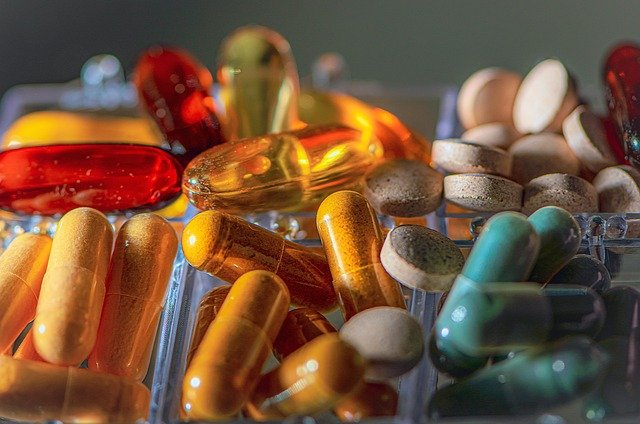How People in the UK Receive Free Products for Promotion
Many people in the UK are discovering a surprising way to get free products delivered straight to their doors — not through giveaways, but as part of promotional testing programs. Companies are constantly looking for everyday consumers to try and promote their products online. If you’ve ever wondered how influencers and regular users receive items for testing, here’s what’s really happening behind the scenes.

Why Companies Send Out Products for Promotion
Product promotion through everyday consumers has become a cornerstone of modern marketing strategies in the UK. Companies invest in sending free products to individuals for several compelling reasons. First, authentic user-generated content delivers significantly higher engagement and conversion rates than traditional advertising. When real people share genuine experiences with products, their followers and friends trust these recommendations far more than polished corporate advertisements.
Additionally, brands gain valuable feedback before wider product launches. By sending items to a select group of testers, companies can identify potential issues, gather improvement suggestions, and refine marketing messages based on how real users interact with their products. This approach also helps brands build relationships with potential brand advocates who may continue promoting their offerings long after the initial campaign concludes.
Finally, this strategy is often more cost-effective than traditional advertising channels. For the price of product samples and shipping, companies can generate dozens or hundreds of authentic promotional posts across various social platforms, reaching targeted audiences through trusted voices.
Who Can Participate and What’s Usually Required
Contrary to popular belief, product testing opportunities aren’t limited to those with massive social media followings. While established influencers certainly receive numerous offers, many companies now actively seek everyday consumers with smaller, more engaged audiences. Micro-influencers (typically with 1,000-10,000 followers) and nano-influencers (under 1,000 followers) often deliver higher engagement rates and more authentic content.
To participate, individuals typically need to meet specific requirements. Most companies expect testers to have active social media accounts with genuine engagement, though the required follower count varies widely depending on the brand’s strategy. Some focus on audience demographics rather than size, seeking participants who connect with their target market.
Registration with product testing platforms like The Insiders, BzzAgent, or Influenster significantly increases opportunities. These services match brands with suitable testers based on detailed profile information. Participants must generally provide honest reviews within agreed timeframes, create high-quality content (photos, videos, or written reviews), and follow disclosure guidelines required by UK advertising regulations, which mandate transparency about receiving free products.
What Kind of Products Are Typically Offered
The range of products available through promotional testing in the UK spans virtually every consumer category. Beauty and skincare items remain among the most frequently offered, with brands eager to showcase visible results through before-and-after content. Participants regularly receive full-sized premium cosmetics, skincare regimens, and haircare products worth substantial sums.
Technology products have also become increasingly common in testing programs. Companies distribute everything from smartphone accessories and small gadgets to occasionally higher-value items like tablets or smart home devices. These campaigns typically target tech-savvy users who can effectively demonstrate product features.
Food and beverage brands actively participate as well, sending everything from specialty snacks and plant-based alternatives to premium coffee, tea, and alcohol products. Home goods, including cleaning products, kitchenware, and small appliances, frequently appear in testing programs as companies seek authentic demonstrations of these items in real domestic settings.
How Product Testing Platforms Operate in the UK
Product testing platforms serve as crucial intermediaries connecting brands with potential testers. These services maintain databases of consumer profiles containing demographic information, interests, and social media statistics. When a company plans a promotional campaign, the platform identifies individuals matching the target audience criteria.
Most reputable UK platforms operate through application-based systems. Members receive campaign notifications and can apply for products that interest them. Selection typically depends on profile suitability, past participation quality, and specific campaign requirements. Successful applicants receive products by mail, along with guidelines about expected content and disclosure requirements.
Some platforms operate on points-based systems where consistent, high-quality participation earns rewards leading to more valuable testing opportunities. Others function more like traditional influencer networks, offering product-for-content exchanges without monetary compensation. The most successful participants often graduate to paid partnerships as they demonstrate their promotional value.
The Economics of Product Promotion Campaigns
The product promotion ecosystem represents a significant investment for companies, though one that typically delivers strong returns compared to traditional advertising. For brands, the cost structure includes more than just product samples.
| Campaign Component | Typical Cost Range (UK Market) | Notes |
|---|---|---|
| Product Samples | £10-£500 per unit | Varies widely by product category |
| Platform Fees | £2,000-£10,000 per campaign | Depends on campaign size and platform |
| Shipping Costs | £3-£15 per participant | Based on UK domestic shipping rates |
| Campaign Management | £1,500-£5,000 | For professional campaign coordination |
| Content Rights | Often included or £50-£500 extra | For commercial reuse of generated content |
Prices, rates, or cost estimates mentioned in this article are based on the latest available information but may change over time. Independent research is advised before making financial decisions.
For participants, these opportunities provide clear economic value. The average product tester in the UK receives items worth approximately £500-£2,000 annually, with particularly active individuals receiving considerably more. While most testing arrangements don’t include monetary payment, the free products represent substantial value, especially in premium categories like technology, beauty, and home appliances.
Legal Considerations for UK Product Testers
Participation in product promotion activities comes with legal obligations that UK residents must understand. The Advertising Standards Authority (ASA) and Competition and Markets Authority (CMA) have established clear guidelines requiring disclosure of “gifted” items. All social media posts featuring promotional products must include transparent declarations like “#AD,” “#Gifted,” or “#ProductTesting” to ensure audience awareness.
Participants should also be aware of potential tax implications. While occasional product testing generally falls below taxable thresholds, regular receipt of high-value items could potentially constitute taxable benefits in kind. Most testing platforms provide guidance on compliance requirements, but individuals remain responsible for their tax obligations.
By understanding these promotional ecosystems, UK consumers can ethically participate in product testing opportunities while helping brands connect with audiences through authentic, relatable content. The practice represents a mutually beneficial arrangement when conducted with transparency and honesty.




